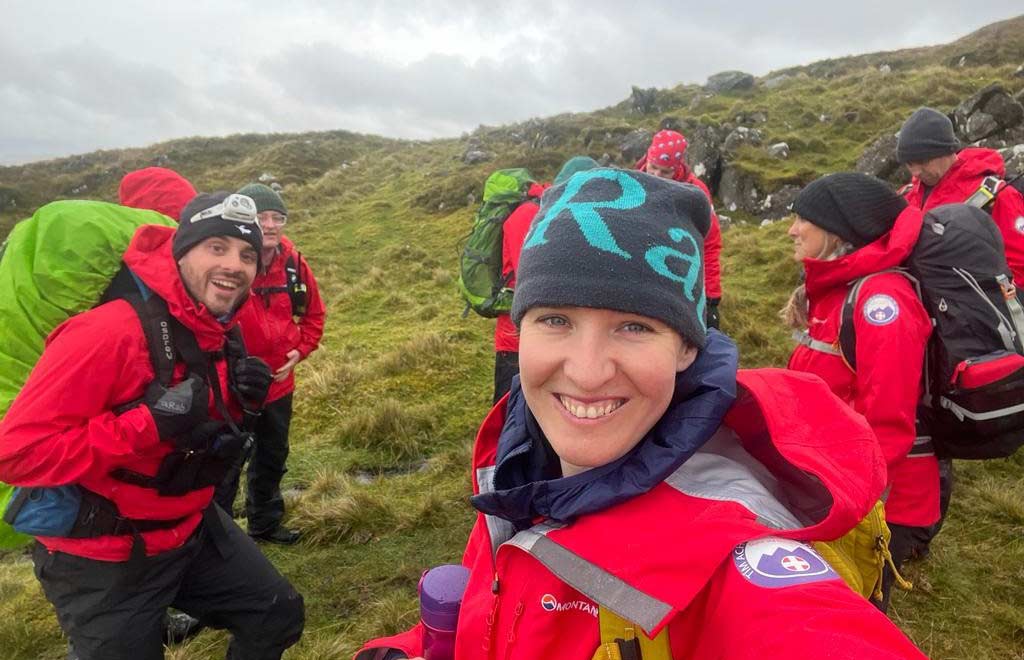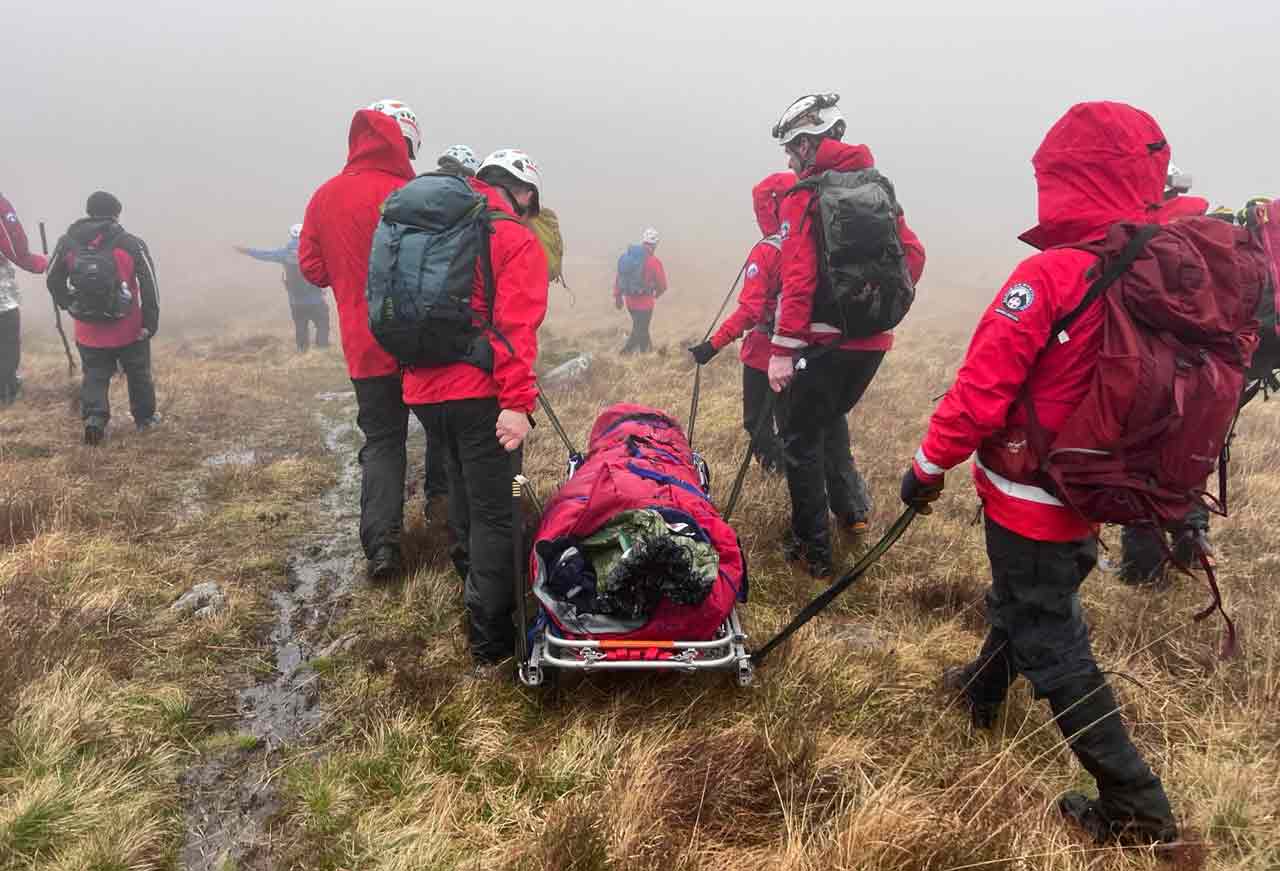
It was the love of the mountains and adventure sports that brought Dr Hayley Jones to North Wales after doing her Foundation training in London.
She had just come back from a year out, high altitude trekking in Nepal and rock climbing in India and was studying for a Postgraduate Diploma in Mountain Medicine. It seemed like a natural step to begin volunteering for the South Snowdonia Search and Rescue Team. Eight years later she is a GP partner and has also found a deeply rewarding path, building her mountain medicine expertise and working hard to upskill the rest of the team.

Part of the North Wales Mountain Rescue Association (NWMRA), her team – made up of 40 to 50 voluntary members – covers vast swathes of mountainous and coastal terrain that includes dense forest trails popular with walkers and mountain bikers. The team train weekly to ensure they have the medical expertise, rope rescue, navigation and search skills needed to respond to mountain emergencies. They’re on call 24 hours a day, 365 days a year.
A typical call out might be an ankle fracture or someone has fallen ill in a remote location, called 999 and the police have alerted the mountain rescue team. The weather can be brutal and with tricky terrain (sometimes in the dark) it can take an hour or two to reach them, she explains.
As the only healthcare professional in the team, Hayley is responsible for all the medical training, medical equipment and life-saving drugs the team use during rescues.
She leads annual mountain rescue training courses for the region, enabling team members to upskill in lifesaving first aid. This educational part of the job is something she finds particularly fulfilling, she says.
“It's the only volunteer organisation where team members can obtain a medical qualification to give morphine and other emergency drugs without a medical licence,” she says. It involves team members completing a nationally recognised course and exam to become a Remote Rescue Medical Technician.
“As a GP I don't get to all of the rescues, because I can't leave work, but I will provide remote telephone advice to the team for any complex medical decisions. One major reward for me is that I've equipped local people to have advanced medical and trauma care skills that they can apply not just on rescues but in daily life. I hear time and time again how they're stopping at road accidents or coming across unwell people in our rural communities and providing really good pre-hospital first aid before the ambulance arrives.”

Part of NWMRA’s role is to raise awareness of how to approach a day out in the mountains, including having warm clothing, a head torch, phone charging pack and access to the gold standard OS maps physically or on the App. As a charity, each team has to do their own fundraising to buy the equipment essential to remain operational.
Taking part in the BBC programme SOS Extreme Rescue has been incredibly helpful for public awareness, she says and has appeared on the programme several times.
One of the most dramatic rescues was a young man who had fallen 80 feet from a waterfall in Coed y Brenin forest. A passerby had raised the alarm.
“He had major traumatic injuries - a femur fracture with heavy bleeding, chest and head trauma and needed blood and oxygen,” she recalls. “It was a huge, multi-agency operation involving the ambulance service, the Coastguard helicopter, the Welsh air ambulance, and we had to set up a rope system to reach him.”
The Coastguard helicopter had to hover over the waterfall to winch him out. He survived and later fundraised for mountain rescue. “Seeing people recover, knowing the basics we did on scene—airway management, bleeding control—bought them the time they needed to reach hospital. That’s the reward.”
Experiences like this are fairly different to the day job, she admits. But being a GP three days a week has enabled her to have this incredibly fulfilling portfolio career. She is also the Bangor GP training programme director and is the First5 representative for RCGP Welsh Council.
“Maybe your early 30s is the time to really say yes to things and push your career,” she says. The years of training she’d run for mountain rescue got her the GP training role because she had such a wealth of teaching experience, she adds.
“I encourage GP registrars to diversify and develop special interests early, so that they can forge a sustainable portfolio career. It can be quite tough to be a GP in the current climate, so it’s important to balance that with other interests.”
Thank you for your feedback. Your response will help improve this page.
